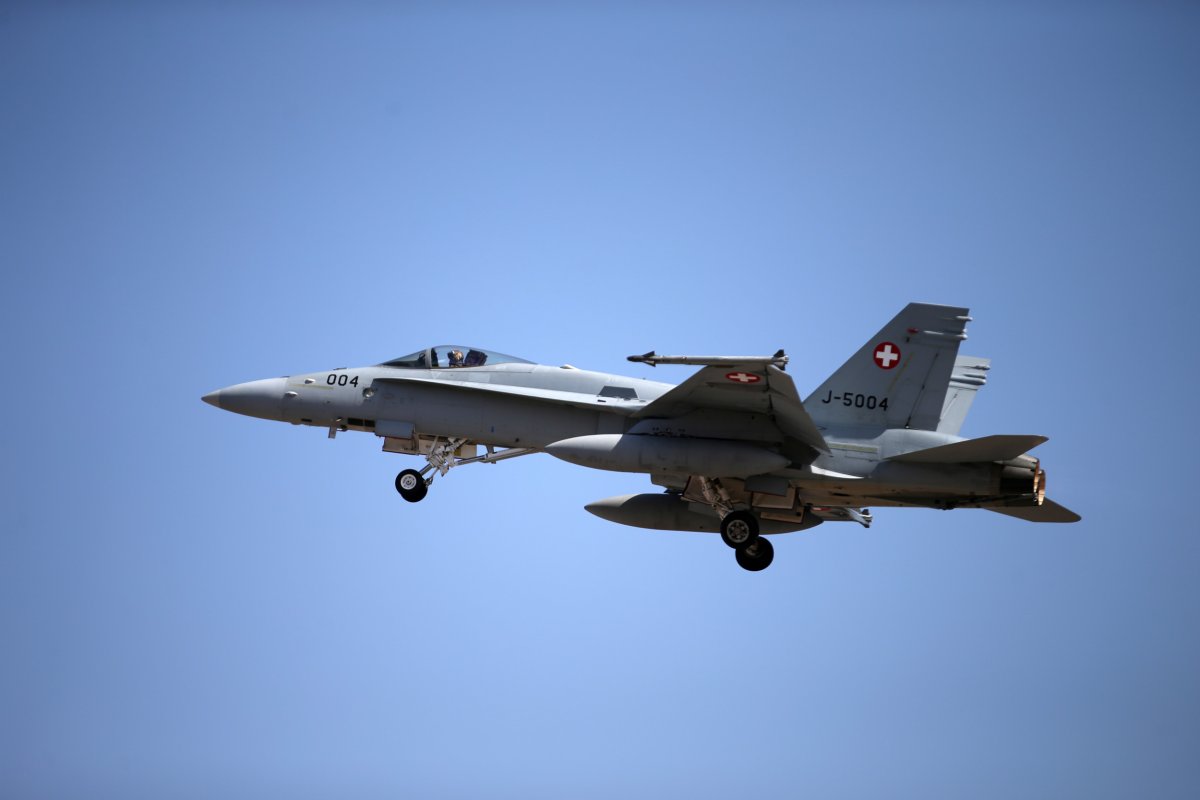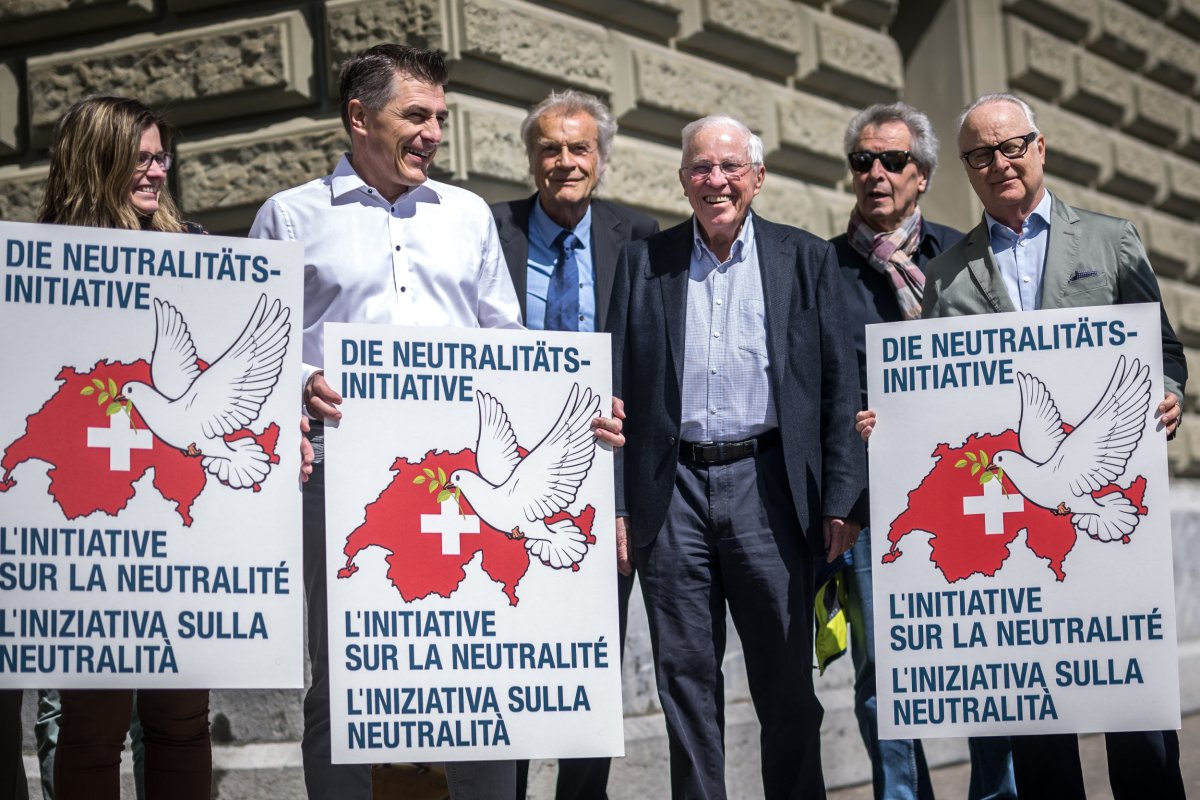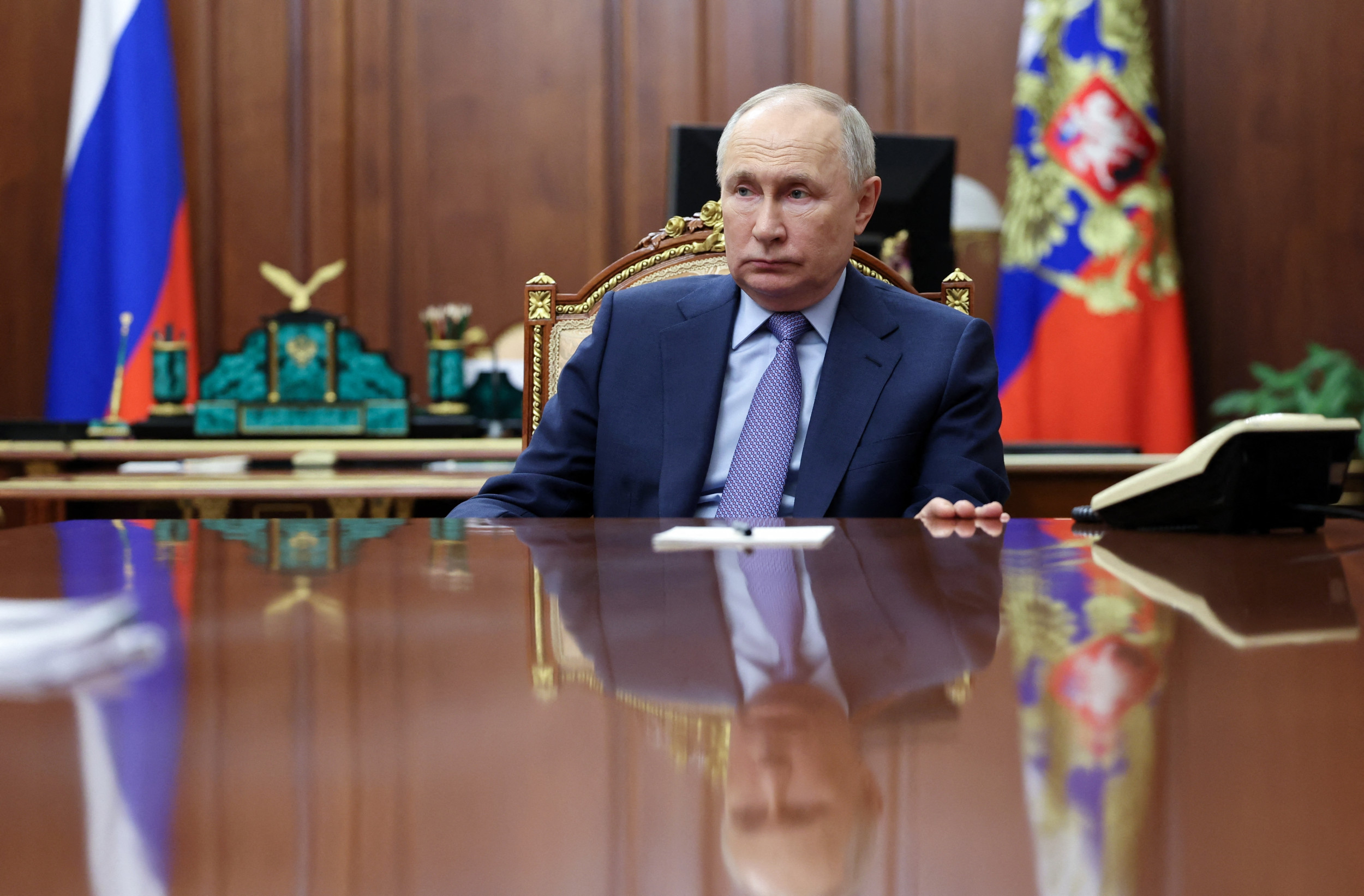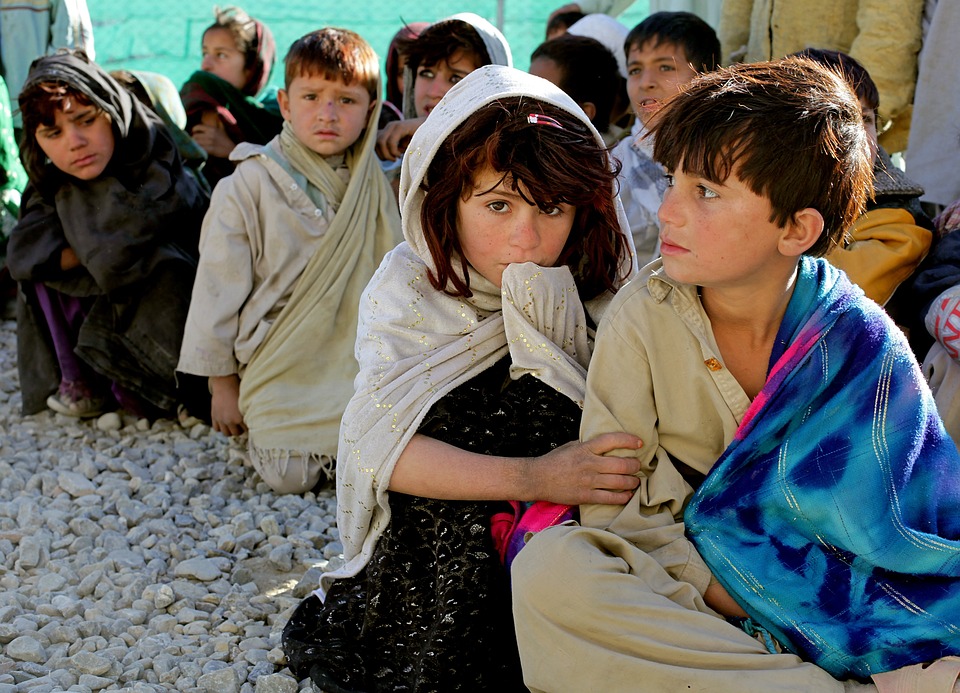President Vladimir Putin‘s Russia repeatedly demanded the creation of a new European security architecture before the full-scale invasion of Ukraine in February 2022.
Moscow wanted NATO expansion frozen, and perhaps even reversed. Russia, it said, must win new security guarantees from its Western rivals and be central to a new understanding of power on the continent. The Kremlin’s demands were rejected by NATO leaders, and Moscow subsequently rolled the dice with its disastrous assault on Ukraine.
The two-year-old war has certainly redrawn the European geopolitical map, though not to the Kremlin’s benefit. Sweden and Finland have joined NATO, Western powers have embarked on a major sanctions offensive against Russia, and Ukraine and Moldova have embarked on the long road to European Union membership. Stress fractures have emerged, but the Western bloc has proven more resilient than Moscow would have hoped.
Even in Europe’s most fiercely neutral nation, the effect of the war is being felt.
GAVRIIL GRIGOROV/POOL/AFP via Getty Images
Switzerland is bucking centuries of non-alignment by adopting EU sanctions on Russia and approving the re-export of some Swiss weapons and munitions to Ukraine via third parties—though Bern has refused to provide arms to Kyiv directly.
Pressure is even growing in parliament for the government to sign up to transatlantic proposals to seize frozen Russian assets and hand them to Ukraine, a step that would contrast with the country’s traditional and lucrative role as a center for discrete—and at times illicit—financial dealings.
Such a move may even imperil Putin’s own fortune, at least some of which is alleged to have been stored in or moved through Switzerland under the names of allies.
Last month, the upper house of the Swiss parliament voted 21-19 in favor of several motions—passed by the lower house late last year—that will allow the government to begin forming a legal basis for the use of frozen aggressor-state assets to pay for reparations in victimized countries.
“The facts are very clear indeed,” Foreign Minister Ignazio Cassis told the upper house. “Russia has seriously violated international law. It must therefore repair the damage caused. International discussions are underway regarding compensation mechanisms and Switzerland is participating with its knowledge, its skills and all its history in this area.”
Switzerland is still operating within the bounds of the 1993 federal white paper on neutrality that set out the country’s non-alignment policy, Swiss diplomat Thomas Greminger—who previously served as the secretary general of the Organization for Security and Co-Operation in Europe (OSCE)—told Newsweek.
“In a nutshell, the Swiss response was on one hand sticking to the core of neutrality—that is the legal obligation of not supporting one party over the other militarily—but fully exploiting all the flexibility that neutrality policy offers a state,” Greminger, who is now the director of the Geneva Centre for Security Policy think tank, explained.
This flexible neutrality, he said, has enabled Bern to make “very clear from the very beginning that neutrality does not mean indifference in terms of defending international law, in standing up for the values of the rule of law, human rights and democracy.”
The country has long coordinated with NATO through its Partnership for Peace program, and is now involved in the European Sky Shield Initiative, a pan-national bid—initially proposed by Germany following Russia’s invasion of Ukraine—to build an integrated European network defending against ballistic missiles and other aerial threats.
A 2023 poll found that 55 percent of Swiss respondents—a record-high number—support moving towards “closer ties” with NATO, a three-point jump from 2022 and a 10-point increase from 2021 prior to Russia’s invasion.
A direct Russian attack, President of the Swiss Confederation and Minister of Defense Viola Amherd said this week, would mark the end of the country’s neutral era.

Baris Seckin/Anadolu via Getty Images
Putin’s ‘Wallets’
It is on the sanctions front that Switzerland could perhaps play the biggest role. The country has frozen some $8.81 billion in assets belonging to Russians since the beginning of the war, the government said in December. That is but a fraction of the total wealth held by Russians in Switzerland, estimated by the Swiss Bankers Association to be worth more than $164 billion.
Newsweek has contacted the Swiss Economic Ministry by email to request comment.
Some of those Russians are accused of acting as “wallets” for Putin, storing massive amounts of wealth on behalf of the Russian strongman, who it is speculated may be the wealthiest person in the world when all of his secretive assets are combined.
Swiss prosecutors last year brought a criminal negligence case against four Swiss-based executives at Gazprombank, who were accused of mishandling money from Sergei Roldugin; a musician who is the godfather of Putin’s daughter and who had some $50 million in assets.
Greminger said the country’s alignment with EU measures against Kremlin-linked Russians could prove a headache for Putin and allies, especially if pressure from the public and parliament to do more are heeded by the government.
“The official government policy still argues that Switzerland has, comparatively speaking, frozen a lot of Russian assets and is cooperating internationally on a number of platforms,” he said. But Bern has been hesitant as to the seizure of frozen funds.

FABRICE COFFRINI/AFP via Getty Images
“Here the government is under some pressure,” Greminger said. The current government’s policy on sanctions is dominated by Economy Minister Guy Parmelin, Greminger added, a member of the populist and isolationist Swiss People’s Party (SVP) who has argued against measures against Moscow.
The party is considered close to the country’s powerful banking sector. “Were this ministry in different hands, the policy might also be more progressive,” Greminger continued.
On Friday, activists supported by 130,000 certified signatures submitted a petition for a new vote on their proposed “neutrality initiative,” which would end Bern’s involvement in international sanctions on Russia. The push is supported by the SVP, which said in a statement: “The gradual dissolution of neutrality is a threat to Switzerland’s internal and external security.”
Still, the ground appears fertile for more pro-Kyiv action. A 2023 survey of Swiss voters found 91 percent of respondents supported continued neutrality, though 75 percent believed the current sanctions against Russia were compatible with the traditional stance.
Growing pressure on the government is “clearly due to this broad solidarity with Ukraine in the Swiss population,” Greminger said, as well as a push by Swiss NATO and EU allies to do more.
“I talk about Ukraine publicly, on panels, and so on,” he added. “I sense there is dissatisfaction among most Swiss that these loopholes still exist.”
Uncommon Knowledge
Newsweek is committed to challenging conventional wisdom and finding connections in the search for common ground.
Newsweek is committed to challenging conventional wisdom and finding connections in the search for common ground.















